Audio
Ronak Shah: on-road driving education
Ablequest by
2RPH3 seasons
12 January 2024
14 mins
Driver educator outlines what's needed for a person with disability to get a driver's licence.

Ablequest is a series of 15 minute programs which examines developments in assistive technology and initiatives for those people living with a wide range of disabilities. Presented by Barbara Sullivan, Marni Roper and Elaine Wziontek.
This episode:
Ronak Shah, General Manager of Onroad Driving Education and an expert in disability driving instruction explains what is required for people with disabilities to obtain a driver's licence.
Original broadcast date: 12.01.24
Speaker 1 00:03
With information on the latest developments in assistive technology and initiatives, from the studios of two RPH in Sydney, RPH Australia brings you Ablequest.
Hello, I'm Manny Roper. For most Australians, the ability to drive and obtain a licence is a ticket to independence. Our guest today, Ronak Shah, is an expert in providing that pathway for people living with a disability. He has a successful driving school, On Road Driving Education, that provides driver education across all ages and categories. Today, Ronak discusses with Barbara Sullivan the requirements for accepting students with varying disabilities, the time taken to get a driver's licence and the special training of the driving instructors.
Speaker 3 01:01
Welcome to Ablequest, Ronak. It's great to have you on the show today. How did you become involved with the special needs of students with disabilities who want to be able to drive?
Speaker 2 01:13
Thank you for having me. First of all, we've been in the business for over 15 years and since special needs or the NTIA scheme started like a few years back, we always wanted to do something different.
We always want to ensure that everyone can have a goal, everyone can get a license, and everyone can have a freedom in their own life as well. So since that time, we've always been involved with the heaps of non -for -profit organizers, special needs, NTIA's.
And I always believe that we want to do something different. We want to help the citizens to make sure that the freedom is for everyone. And this is how we started as a special needs driver education.
Speaker 3 01:53
and what proportion of your business is for special needs driving education.
Speaker 2 01:58
When we started, we probably had one or two clients. This is like seven, eight years old back. Out of probably about 2 ,000 driving lessons we used to do. So when you think probably two lessons equal to 2 ,000 lessons, seven, eight years back, current ratio is about 1 ,200 to 1 ,400 and every 2 ,000.
Speaker 3 02:18
Yeah.
Speaker 2 02:19
Our numbers has gone up, so I would probably say we do about 10 ,000 lessons. But I'm just talking about the first one today. So there are so many special needs and the good thing is government supporting so many independent participants to get the freedom as well.
Speaker 2 02:35
So the ratio is nearly like 50 -50 in my opinion at this stage.
Speaker 3 02:39
That's fantastic. I'd like to talk about how people with disabilities go about learning to drive and get their license. Could you just explain the process? Is it any different? Do they typically need extra driving instruction than people who do not have a disability?
Speaker 2 02:56
The requirements from the government point of view, like if you talk about seed needs, service needs are 12s, or if you talk about Melbourne, the week roads, generally the process of getting a license, they're nearly the same.
Speaker 2 03:08
Let's talk about seed needs, for example, as a licensing condition. So they have to do 120 of us if they are aged under 25, same conditions for any clients, regardless of special needs on normal clients.
Speaker 2 03:21
They still have to do the 20 night hours and everything as well. So the requirements are not different. Sometimes when they appear for the driving test, when they completed 120 years, we normally advise the examiner that they are the special needs clients or NDS clients.
Speaker 2 03:37
So would you please guide them if they do not understand your verbal instructions? Would you guide them with your hand signals? Like at the traffic light, we are turning right. Now, sometimes the special needs people might be nervous or maybe high at the HD or it could be anything.
Speaker 2 03:52
So we advise them, why can you do the hand signals? So those are the things slightly different. Sometimes when they have a physical disability and they use a modified vehicle like electronics, steering knob or the F4 accelerator and those kind of things.
Speaker 2 04:05
So those are the learnings, one of you are different. But coming back to the licensing, they're nearly the same.
Speaker 3 04:11
Can you get a license, for example, if you are completely deaf?
Speaker 2 04:14
We had those examples. We got that success in getting not 100% outside. The people that we got our success story, they're about 80%. So they could still hear the ambulance are and they put the birds in the ears.
Speaker 2 04:31
But yeah, you can still apply and the first step is you need to get the computer test, which you can easily get them out. Then you have an OT assessment. So generally what happens after that point, the occupational therapist does an assessment and then they assess whether are you able to get the license or not.
Speaker 2 04:49
So over the interview, I wasn't able to say yes but no because it's it depends on the OT assessor how they assess, but it is possible.
Speaker 3 04:58
So what you're saying there is that the OTA assessment happens after they've done their driving instruction before they get their license. Do you as a specialist driving school want some sort of assessment before they start their instruction so that you can really understand what their needs are?
Speaker 2 05:15
Most of the participants we got, they generally do the OT assessment prior to coming to us. And we also provide OT assessment as well. So we have our own OT assessment. So we always advise all the participants that it's better to have an OT assessment.
Speaker 2 05:30
Depending on the plan they are on, generally NDAs advise them whether they need an OT assessment or not. So NDAs also screen them before even they create the plan. Once they create the plan, they put the conditions on the plan and that OT assessment require before coming and seeing the specialized driver training.
Speaker 2 05:48
In that case, they must do the OT assessment or then they get the learners license. Some of the participants need two different assessments. They call off -road and on -road as well. So off -road means when they're going for the computer test, they need to do off -road assessment to make sure that they can read, write, and all the body parts are okay.
Speaker 2 06:08
The on -road assessment is once they get the learners license, they need to make sure that they're physically okay to drive the vehicle, whether they can reach to the paddles or if they have any physical disabilities, we have a modified vehicle and they are okay to drive those modifiers.
Speaker 3 06:23
And does the OT ever drive with them for the lessons?
Speaker 2 06:27
Generally, no, they only do the assessment and we ensure that we follow whatever the OTSS that is suggested us to do, like going on, quiet street or around about whatever the advice, they normally write that pretty detailed report in the O2 report.
Speaker 2 06:41
And then we follow that after the 10 driving lessons that was suggested by the OT, we come back to the OT and say guys, now the participants are due for the reassessment or we follow what the recommendation from the happened at that time.
Speaker 3 06:55
Do you have a liaise with NDIS on behalf of the driving students?
Speaker 2 07:00
Definitely yes. I mean we have to do nearly one out of five to one out of ten clients. We have to communicate with NDI. There's multiple reasons behind that. Sometimes they don't have a funding. Sometimes they're not sure whether they need an OT assessment or not.
Speaker 2 07:15
Sometimes the client has no idea. We were speaking to one of the clients last week and they said, you know, I got my plan this morning and I had no idea how the plan got connected and I could see from the plan that he shared that he got specialized driver training but he wasn't sure.
Speaker 2 07:32
Now as a provider we didn't have the detail of the plan. So we called NDI. We did a conference call with the support coordinators, with the plan manager, with the participant NDI. And then it took out probably about 20 -20 families but finally we got all the answers and he was able to start the service.
Speaker 2 07:51
So he was very happy with that and even in my opinion, you know, communicating with NDI participants, support coordinators, parents, plan managers. Once we work all together in a conference call that much faster rather than we go backward forward with a lot of people.
Speaker 3 08:10
Yes, I can imagine. Now, a question which probably doesn't involve you, but does NDS fund vehicle modification as well as the actual driving instruction?
Speaker 2 08:20
Again, depending on case to case basis, about two years back we had a client and he had been driving lessons for about two to three years. Very good clients, very patient, age of 41. He never realized that he would get the license at that point.
Speaker 2 08:37
He had a physical disability.
Speaker 1 08:40
Mm.
Speaker 2 08:40
And after two and three years, he appeared for the driving test. Unfortunately, he failed the first driving test and he passed the second driving test. And when he passed, he wanted the vehicle modification of the vehicles.
Speaker 2 08:54
Now obviously, he had a very big NDS plan. So the way we proposed to the NDS that, you know, this person needs a freedom in the life. And fortunately, we done the OTSS. When everything we follow what the NDS suggested, then he got funded for the modified vehicle, including all the modifications.
Speaker 2 09:12
Then he was independent, you know, and he started driving. He used to go out and luckily we worked with the Hips of NDS companies as well. And there was one particular company looking for an employment.
Speaker 2 09:23
So this person, we referred to them and he got the job as well. So he found the work he is enjoying. He's been about two years now, same company. He works full time now and his life is very different.
Speaker 3 09:38
What a great story. Ronnack, often people develop a disability through a catastrophic accident. They still have a current licence, but they need to be retrained to get back on the road. Do you have many people like that coming to the driving school?
Speaker 2 09:52
Yes, we do. I mean, we always get called from the insurance companies, from the CTP. Recently, we had an example, one of the insurance companies called us and there was a taxi driver who had a massive accident on Ampho and they asked us to provide for you driving lessons.
Speaker 2 10:07
And when we went there, we realized that he's an excellent driver, no issues when he goes under the 60 or 70 speed, but once he reached 280, he started getting that recall of that accident and he lose patience and he's not a safe driver.
Speaker 2 10:22
So we requested the insurance company to, you know, provide more support, which successfully they did. And after about 20 -25 sessions, what we did was we're ongoing and constantly driving in a different road conditions to the new car.
Speaker 2 10:36
So we want to have an passenger on the taxi. And after about 26 lessons, he was normal. Then now he's a taxi driver back again.
Speaker 3 10:44
Great story. Now what special training do driving instructors have to undertake to teach disabled drivers? Do they need to be certified, for example, for this specialised work?
Speaker 2 10:56
Yes, they do. Anything related to the NDIS or when we work as providers, we have to make sure that we follow the common guidelines like NDIS screening checks, NDIS police checks, all the documents, all the licenses, all the insurance.
Speaker 2 11:12
They are the standard ones. But coming back to a special ed driver training, they need to do a specialized course, which we conduct nearly one day in our business premises and we train them on how to deal with all the special disabilities.
Speaker 2 11:26
Like if somebody is a slow learner, how will our trainers will write that? So we have a very simple formula for any client that we want them to come with a smile and our job is to make sure when they finish the driving test that they go with a smile.
Speaker 2 11:39
Now, that smile is very important, especially for the NDIS clients because if they are happy, they actually learn quicker and if they are happy, they're the best example. One of our best NDIS trainers, he works in the pan -ridery and he had one of the clients and when he came, he was very upset with his personal life and everything and he was keep talking to the trainers.
Speaker 2 12:08
Now, at that point, trainer knew that it's not a good idea to ask the driver to participate. So he was keep driving and he said, okay, now I'm going to give you a requirement and how you turn left, how you signal exit at the roundabout and blah, blah, blah, like all driving topics.
Speaker 2 12:26
And after 10 minutes, he realized that now he's become easy to like and he said, okay, now we're going to switch over and then they switch over. They're done like, you know, nearly 40, 40, 40, 50 minutes less than the finished one hour.
Speaker 2 12:37
When they both came, they were both happy and both smiling. The important part of this story is like, we need to understand how they come in the vehicle and how we deal with them as well. Because it's important that they are relaxed when they are driving.
Speaker 2 12:53
They're the mindset is pretty easy going.
Speaker 3 12:56
Just one last thing. I imagine your website has quite a lot of information on it. Could you give me the website address, please?
Speaker 2 13:04
So it's onroad .com .au, so that's O -N -R -O -A -D .com .au. Once you visit the website, you will see a disability driving sectors on the top. We do the OT assessment, we do special driver trainings.
Speaker 2 13:18
Now we actually provide our service in the flight space. But the most important part is when you visit the website, you can actually fill up the referral forms, you can look everything, any questions you got, just fill out the form and one of our experts will get back to you.
Speaker 2 13:31
We really want to ensure that we support beyond what they expect. And we want to ensure that one day they get the freedom to drive.
Speaker 3 13:40
That's wonderful. Thank you so much, Ronak. I've been speaking with Ronak Shah, general manager of Onroad Driving School.
Speaker 1 13:55
You have just been listening to Ablequest, a program that looks at developments in assistive technology. From Barbara Sullivan and Manny Roper, thank you for listening and goodbye till our next program.
Continue listening

Blind Sports Australia CEO Matt Clayton speaks about its work with blind and vision impaired athletes across 21 sports.
Matt Clayton - Blind Sports Australia
Ablequest by 2RPH
5/5/2023
•13 mins
Audio

Vivid, Sydney's celebration of creativity, seen from a disability access focus by its director.
Gill Minervini - Vivid
Ablequest by 2RPH
19/5/2023
•14 mins
Audio

This program discusses dance movement therapy and how it works - featuring Cecilia King of the Dance Therapy Association.
Cecilia King - Dance Therapy
Ablequest by 2RPH
14 mins
Audio

What are the challenges of providing audio description on Oz TV? Hear Lauren Henley, Aust Federation of Disability Organisations.
Lauren Henley - Audio Description
Ablequest by 2RPH
16/6/2023
•14 mins
Audio

In Part 1 of a 2RPH interview, assistive tech expert David Woodbridge explores latest innovations to make everyday life easier.
David Woodbridge - Tech Update Part 1
Ablequest by 2RPH
30/6/2023
•14 mins
Audio

Features Robert Duff-Silsby of Luddi, Perth company developing assistive devices for all people and bodies.
Robert Duff-Silsby - Sexual Wellbeing
Ablequest by 2RPH
13 mins
Audio

In Part 2 of this conversation with 2RPH's Ablequest, expert David Woodbridge reviews latest assistive technologies.
David Woodbridge - Tech Update Part 2
Ablequest by 2RPH
28/7/2023
•14 mins
Audio

Matt Clayton of Blind Sports Australia and the Oz team's Chef de Mission, discusses the forthcoming World Blind Games in the UK.
Matt Clayton - World Blind Games
Ablequest by 2RPH
11/8/2023
•13 mins
Audio

Prof Kim Marriott of the Monash Assistive Technology and Society Centre, talks about the purpose and work of the Centre.
Kim Marriott - Monash Assistive Technology and Society Centre
Ablequest by 2RPH
25/8/2023
•13 mins
Audio

Ablequest features an interview with Serena Ovens, new CEO of Assistive Technology Supplies Australia or "ATSA".
Serena Ovens - Assistive Technology Supplies Australia
Ablequest by 2RPH
14 mins
Audio

Part 1 of an interview on the voice-activated app, Bindi Maps.
Anna Wright - Bindi Maps (Part 1)
Ablequest by 2RPH
14 mins
Audio

This is Part 2 of an interview with Dr Anna Wright, explaining how Bindi Maps works.
Anna Wright - Bindi Maps (Part 2)
Ablequest by 2RPH
14 mins
Audio

Artist Ebony Wightman of disability-led We Are Studios talks about art and challenge.
Ebony Wightman - We Are Studios
Ablequest by 2RPH
20/10/2023
•13 mins
Audio

Prof. Leeanne Carey discusses the SENSe program, her team's world-first therapy to help stroke survivors.
Leeanne Carey - SENSe Therapy
Ablequest by 2RPH
2/11/2023
•13 mins
Audio

Youthworks Accessibility Minister Bec Baines talks of making church accessible to young people with disabilities.
Bec Baines - Youth and Worship
Ablequest by 2RPH
16/11/2023
•14 mins
Audio

Nikki Hind, Australia's first blind fashion designer, discusses her work.
Nikki Hind: Blind Grit
Ablequest by 2RPH
1 December 2023
•14 mins
Audio

Dr Dimity Williams, family GP, recommends spending more time in nature - and a "green hour" each day.
Green Hour: Dr Dimity Williams
Ablequest by 2RPH
5 December 2023
•14 mins
Audio

Imagine sitting in a wheelchair for hours, being unable to move your fingers or arm to do simple things like pick up a glass.
Konstanze Hager - Bateo
Ablequest by 2RPH
Konstanze Hager - Bateo
•14 mins
Audio

Action Audio is a new language being created to transcend sport.
Machar Reid - Action Audio
Ablequest by 2RPH
Machar Reid - Action Audio
•14 mins
Audio

What a difference one person with experience, passion and energy can make to many lives.
Julie Ross-Edwards - Head High
Ablequest by 2RPH
Julie Ross-Edwards - Head High
•14 mins
Audio

Driver educator outlines what's needed for a person with disability to get a driver's licence.
Ronak Shah: on-road driving education
Ablequest by 2RPH
12 January 2024
•14 mins
Audio

Vision Australia's Christo Sarantakis talks of his life, blindness and assistive tech changes.
Christo Sarantakis of Vision Australia
Ablequest by 2RPH
26 January 2024
•14 mins
Audio

Introducing Australia's first pictureless feature film, TOUCH, showing in Sydney.
Majella Knobel: "Touch" - open air movie
Ablequest by 2RPH
9 February 2024
•14 mins
Audio

An expert discusses the use of horticultural therapy for people with disabilities.
Steven Wells: horticultural therapy
Ablequest by 2RPH
23 February 2024
•14 mins
Audio

Features articles on latest blind-assistive tech including a new bus app and smart ear buds.
Assistive tech news catchup
Ablequest by 2RPH
8 March 2024
•14 mins
Audio

Features an innovative hospitality industry training program for people with disabilities.
Saraya O'Connell - Hotel Etico Independence Program
Ablequest by 2RPH
22 March 2024
•14 mins
Audio

Guests discuss the Obi robotic dining assistant for people with upper arm disabilities.
Hugh Kingley and Rachel Dekkar: Obi
Ablequest by 2RPH
19 April 2024
•14 mins
Audio

A spy-themed computer program tackles the mystery of social encounters - outlined by its company's CEO.
Kathleen Davey - Social Science Translated
Ablequest by 2RPH
3 May 2024
•14 mins
Audio

A Sydney organisation delivers creative arts and life skills to people with disabilities.
ChoppA Green - Studio Artes
Ablequest by 2RPH
17 May 2024
•14 mins
Audio

An award-winning Central Coast NSW disability service shares its successful strategies.
Lonestar Makoni - Breaking Barriers Disability Services
Ablequest by 2RPH
31 May 2024
•14 mins
Audio

Part 1 of a conversation with an Australian neuroscience research pioneer about benefits of music in brain injury recovery.
Professor Sarah Wilson (part 1)
Ablequest by 2RPH
14 June 2024
•14 mins
Audio

Part 2 of a conversation with a leading neuroscientist of benefits of music in brain injury recovery.
Professor Sarah Wilson (part 2)
Ablequest by 2RPH
28 June 2024
•14 mins
Audio

A CEO talks about his company's award-winning assistive physical therapy device.
Justin Keenan - LusioMate
Ablequest by 2RPH
12 July 2024
•14 mins
Audio

Information about a program teaching good cyber-security practices to make daily life safer.
Jess Wilson: Be Connected
Ablequest by 2RPH
26 July 2024
•14 mins
Audio

A veteran print disability broadcaster with macular degeneration shares her experiences.
Teresa Plane - 2RPH
Ablequest by 2RPH
9 August 2024
•14 mins
Audio

The founder of a blind-assistive technology company shares latest developments.
Peter Ford - Control Bionics (part 1)
Ablequest by 2RPH
6 September 2024
•14 mins
Audio

Part 2 of an interview with the head of an innovative blind-assistive technology company.
Peter Ford - Control Bionics (part 2)
Ablequest by 2RPH
20 September 2024
•13 mins
Audio

Looks at a project to better inform refugee and migrant women on AI.
Good Things - Jess Wilson
Ablequest by 2RPH
4 October 2024
•14 mins
Audio

An expert with lived experience corrects some widespread misconceptions about stuttering.
Dale Williams - Stuttering Awareness Day
Ablequest by 2RPH
18 October 2024
•14 mins
Audio

An inventor discusses his an innovative cane tip to help people with blindness or low vision.
Peter Rickards - Sensaball
Ablequest by 2RPH
15 November 2024
•13 mins
Audio

Part 1 of an interview with an Australian expert on low-vision-assistive technology, on AI and other developments.
David Woodbridge (part 1)
Ablequest by 2RPH
29/11/2024
•14 mins
Audio

Conclusion of an interview with a leading Australian expert on blind-assistive technology.
David Woodbridge (part 2)
Ablequest by 2RPH
13 December 2024
•14 mins
Audio

Looks at the leading stroke treatment work of the Royal Rehabilitation Hospital, Ryde NSW.
Jason Redhead and Graham Cooper of Royal Rehab Ryde
Ablequest by 2RPH
10 January 2025
•14 mins
Audio

An innovative social media platform aims to address isolation and loneliness in the disability community.
Steve Bear - Alvie
Ablequest by 2RPH
7 February 2025
•12 mins
Audio

Australia's largest provider of Auslan sign services outlines its important work.
Brett Casey - Deaf Connect
Ablequest by 2RPH
21 February 2025
•14 mins
Audio

Looks at an Australian organisation's work at helping men seek help and build self-awareness.
Tommy Herschell - Find Ya Feet
Ablequest by 2RPH
7 March 2025
•14 mins
Audio

A speech pathoplogist discusses her work with young people's complex communication needs.
Denise West - Scope
Ablequest by 2RPH
21 March 2025
•14 mins
Audio

A vision-impaired disability rights advocate talks of her work and learning podcast skills.
Freya Wolf
Ablequest by 2RPH
4 April 2025
•14 mins
Audio

A leading Australian eye researcher talks of his team's work in creating new hope for people with retinal damage.
Raymond Wong - Centre for Eye Research Australia
Ablequest by 2RPH
18 April 2025
•14 mins
Audio

A wheelchair-using business owner, facilitator and car rally driver shares experiences and insights.
Mel Harrison - Sitting Low, Reaching High
Ablequest by 2RPH
2 May 2025
•13 mins
Audio
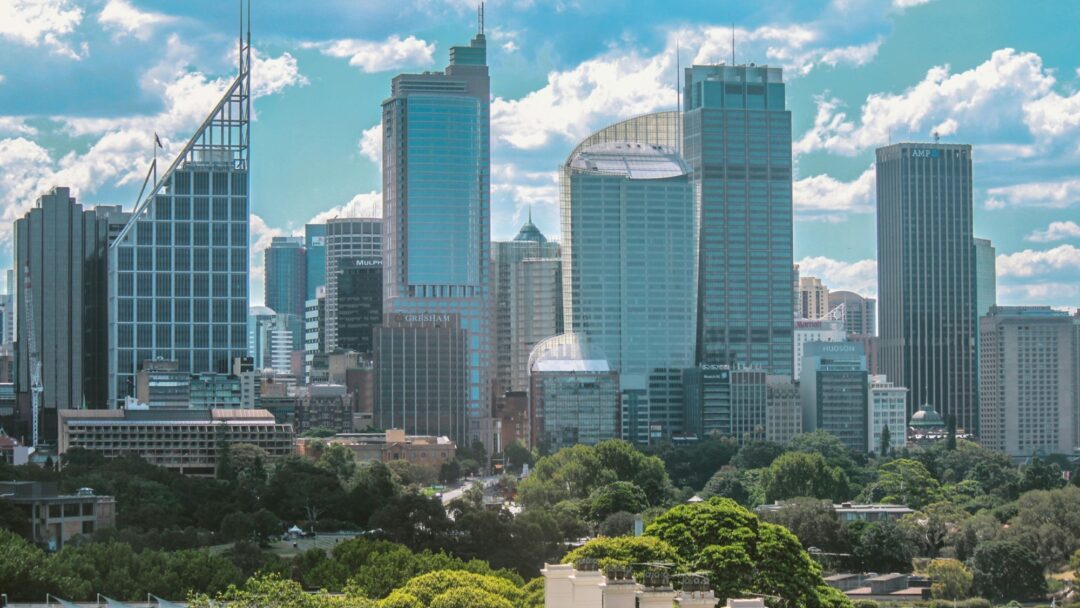
Disability Pride Month in July promotes awareness about people with disability and also celebrates individuals with disability.
Hannah Solomons - Sydney Disability Pride
Ablequest by 2RPH
Hannah Solomons - Sydney Disability Pride
•14 mins
Audio
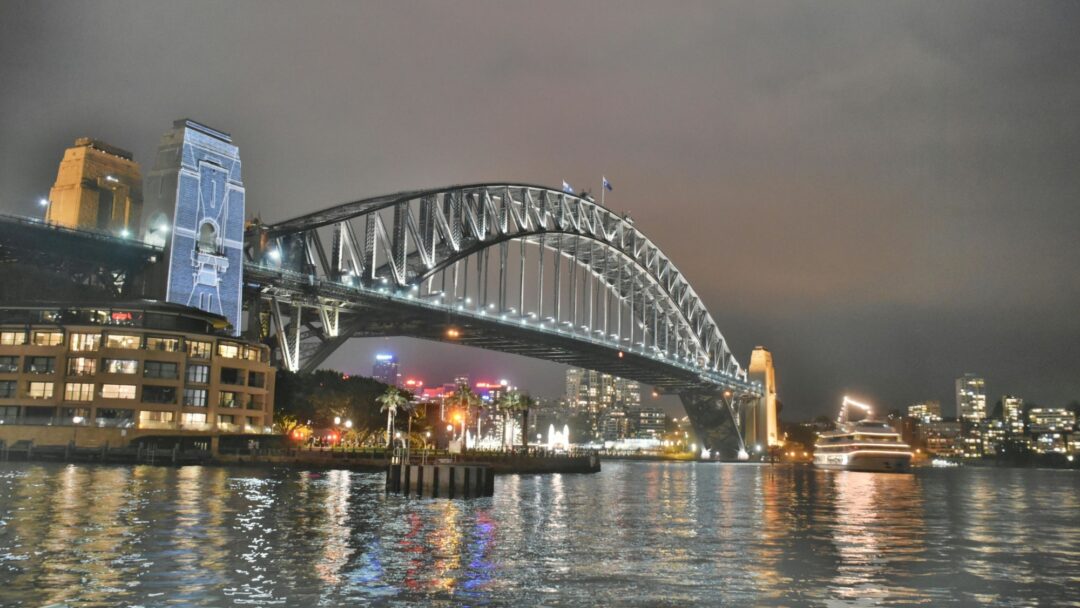
Deb Roach is a three-time pole dancing world champion yet she has only one arm.
Deb Roach
Ablequest by 2RPH
Deb Roach
•13 mins
Audio
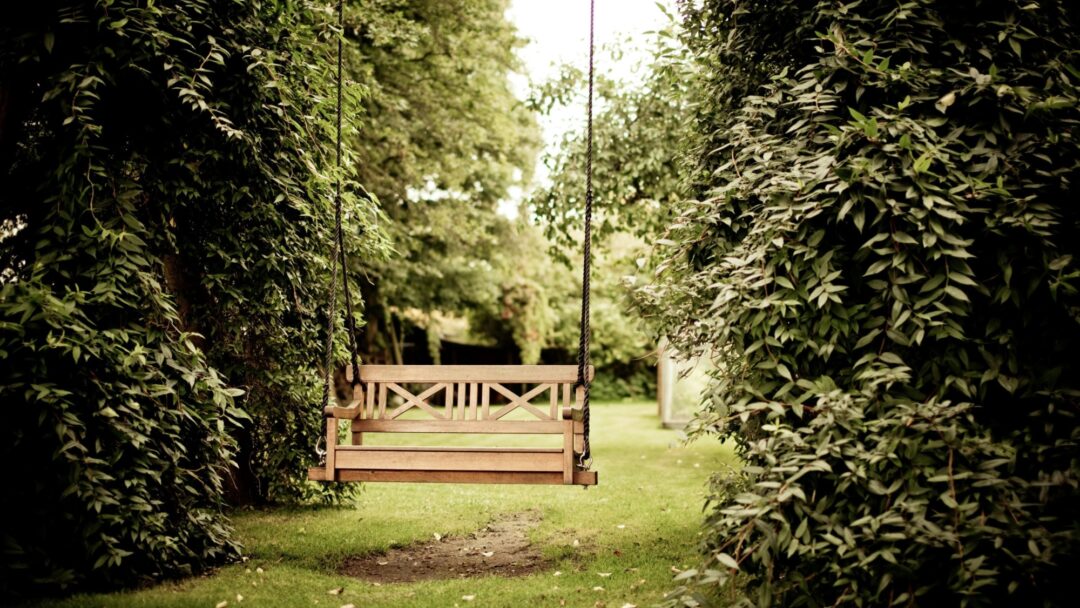
Being in nature is good for you whether it is being in the garden or walking along the beach.
Kayte Kitchen - Admirari Nature Therapy
Ablequest by 2RPH
Kayte Kitchen - Admirari Nature Therapy
•14 mins
Audio

Music can evoke emotions that bring back memories and the same is true for people living with dementia.
Zara Thompson - Music Therapy
Ablequest by 2RPH
Zara Thompson - Music Therapy
•14 mins
Audio
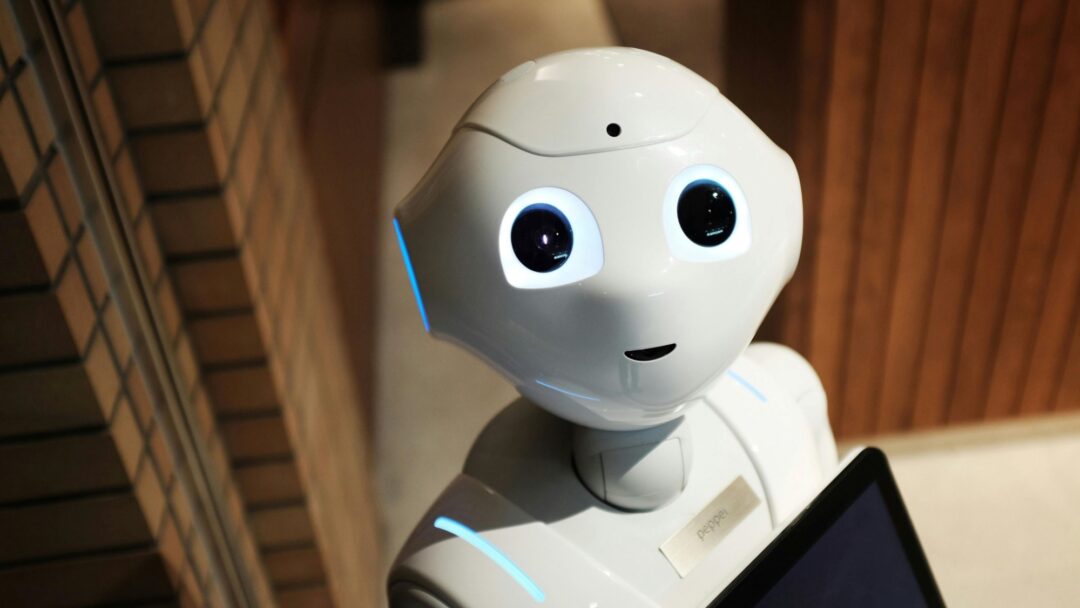
Laura Boccanfuso is founder and CEO of Van Robotics, a social robotics company based in South Carolina in the United States.
Laura Boccanfuso - Van Robotics
Ablequest by 2RPH
Laura Boccanfuso - Van Robotics
•14 mins
Audio

Two years ago Maggie O'Connell, in her mid 20's never had a full time job.
Maggie O'Connell - AFP
Ablequest by 2RPH
Maggie O'Connell - AFP
•14 mins
Audio
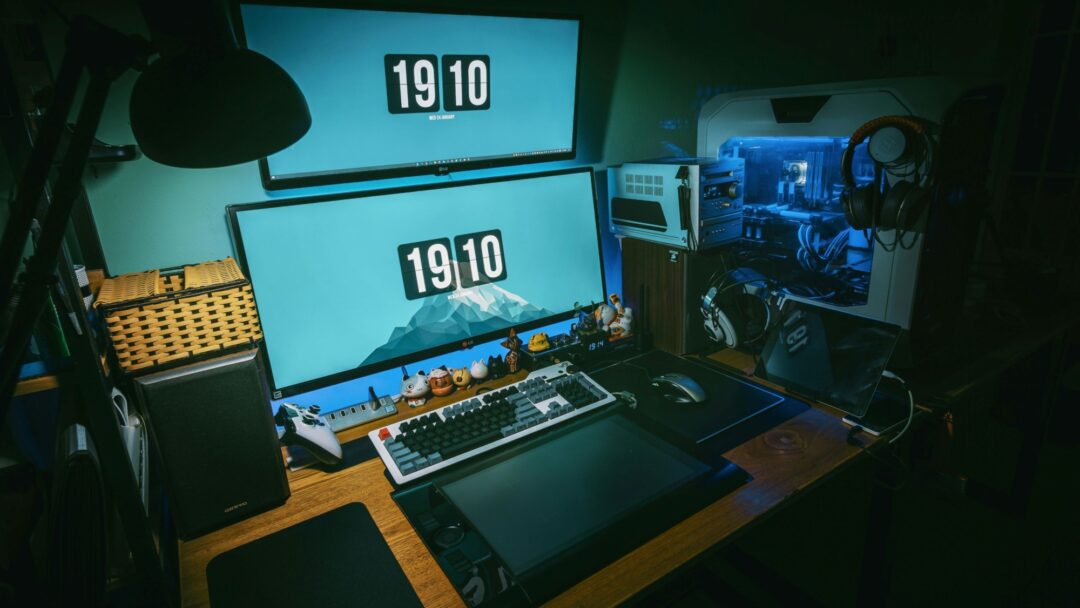
Julie Ross-Edwards, founder of Head High Disability Services, returns to Ablequest to speak more about Head High's philosophy and special approach.
Head High (Update)
Ablequest by 2RPH
Head High (Update)
•13 mins
Audio
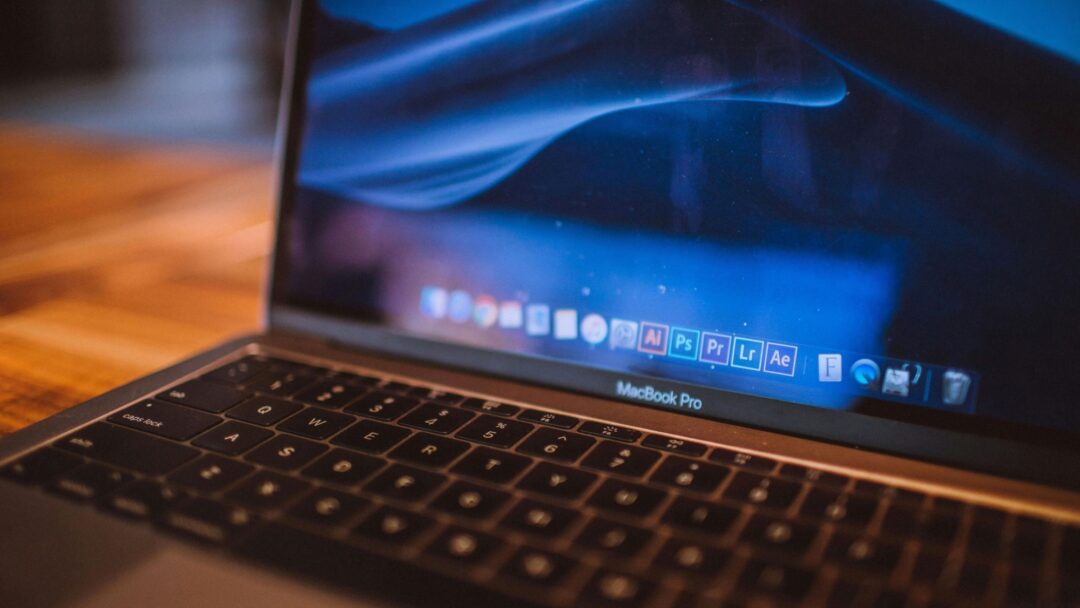
David Woodbridge, an expert in assistive technology for people with no or low vision, is a regular guest on Ablequest.
David Woodbridge
Ablequest by 2RPH
David Woodbridge
•14 mins
Audio

Pete Horsley is the Founder of Remarkable, a global start up and initiative of the Cerebral Palsy Alliance.
Pete Horsley - Remarkable Disability Tech Summit
Ablequest by 2RPH
Pete Horsley - Remarkable Disability Tech Summit
•14 mins
Audio